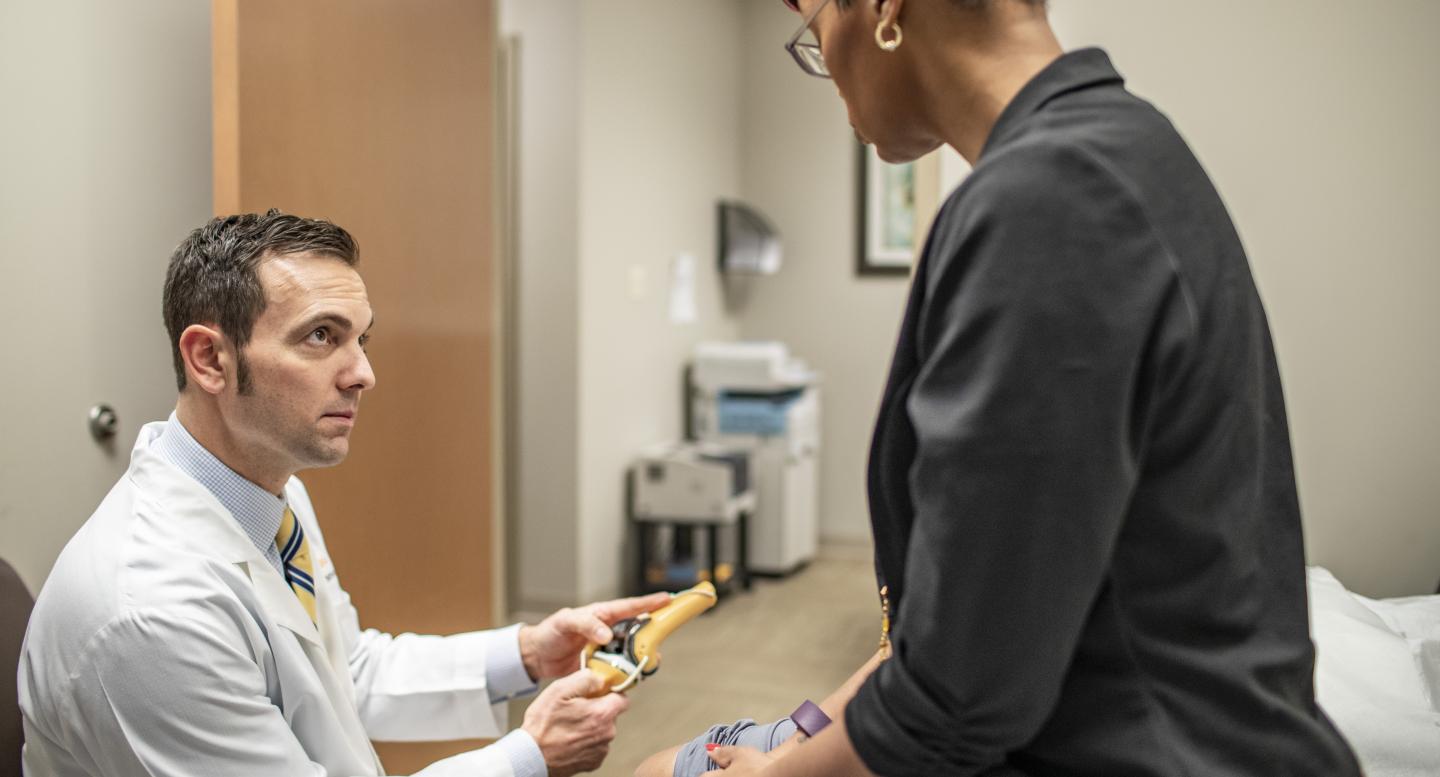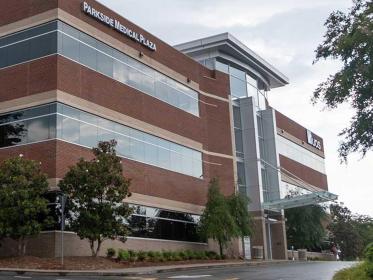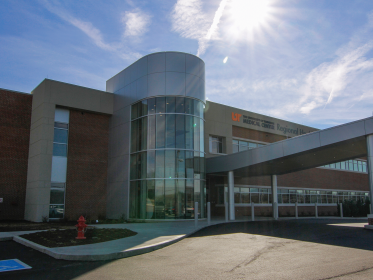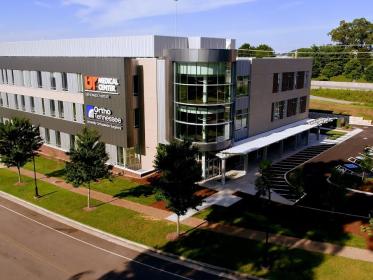Overview
Our physicians develop a customized treatment plan for each patient, which may involve nonsurgical or surgical options, to get you back on your feet as soon as possible.
Conditions We Treat
At the Orthopaedic Institute, we treat a variety of hip conditions, including:
- Arthritis
- Bursitis
- Sprains
- Strains
- Tendonitis
- Sports injuries
- Orthopaedic trauma
Nonsurgical Treatments
When appropriate, our first course of action is to treat you with nonsurgical treatments. These include:
- Anti-inflammatory medications
- Steroid injections
- Physical therapy
- Weight loss
Mako Robotic-Arm Assisted Surgery
If you’ve been putting off your knee or hip replacement surgery, why wait? The latest robotic-arm assisted surgery is here.
Fewer complications, less time in the hospital and a shorter recovery. Get back to your life.
Surgical Options
If surgery is determined to be the best treatment, our expert team of surgeons will choose one of the following options:
Total Hip Replacement
Total hip replacement surgery involves replacing the damaged hip joint with an artificial hip joint. This replacement implant creates a smooth surface so the joint can once again function normally. Hip replacement surgery usually results in a reduction of pain and stiffness. The prosthetic joint can last as long as 20 years. Surgeon training and experience, patient anatomy, surgical history, and implant choices help the surgeon to recommend the most appropriate option.
- Anterior Hip Replacement – The University of Tennessee Medical Center was the first to offer anterior hip replacements in East Tennessee. Anterior hip replacement is a minimally invasive approach that allows the surgeon to access the hip joint from the front of the hip. In this approach, the hip is replaced by working between the muscles and tissues without detaching them from either the hip or thighbones. The Orthopaedic Institute uses state-of-the-art Hana fracture tables, designed specifically for anterior approach, which allow for better positioning and access to the joint. This results in a shorter hospital stay, quicker recovery time, reduced pain, and more normal function after hip replacement. Most of our patients are discharged home on the same day as surgery.
- Posterior Hip Replacement – The posterior approach to total hip replacement is done through the back of the hip. This alternative treatment option may be a better solution for certain patients, and your physician will help you determine which is best for you.
Hip Fracture
We offer preventive care for patients with osteopenia and osteoporosis through our Osteoporosis Clinic. If you suffer a hip fracture due to a fall or trauma, our goal is to help restore your quality of life as quickly and fully as possible.
Our fracture care and reconstruction program includes pre-operative evaluations, diagnostic testing, patient education and counseling, surgical repair and wound care.
Hip Arthroscopy
Orthopaedic doctors use arthroscopy to diagnose and treat a wide range of hip problems. During a hip arthroscopy, the surgeon inserts a small camera, called an arthroscope, into your hip joint. The camera displays pictures on a video monitor, and your surgeon uses these images to guide miniature surgical instruments.
Because the instruments are small and thin, the surgery is performed through very small incisions, rather than the larger incisions used in traditional open surgery. This means less pain for you, less joint stiffness after surgery, and it often shortens the time it takes for you to recover and return to favorite activities.
Hip Resurfacing
Patients with arthritis may be able to avoid total hip replacement for several years by opting for hip resurfacing. In hip resurfacing, instead of being removed (as it is in traditional hip replacements), the femoral head is trimmed and capped with a smooth metal covering. The damaged bone and cartilage within the socket is removed and replaced with a metal shell.
Your orthopaedic surgeon will perform a comprehensive evaluation to help you determine if you are a good candidate for hip resurfacing.
Hip Revision
Physicians perform hip revision surgery to repair an artificial hip joint (prosthesis) that has been damaged over time. When this damage occurs, typically as a result of normal wear and tear, your doctor may recommend a second operation to remove some or all of the original prosthesis and replace them with new ones. Hip revision is a longer, more complex procedure, which requires extensive planning, as well as specialized tools and implants to achieve a good result.
Joint Replacement Resources
If you’re having joint replacement surgery at UT Medical Center, visit Joint Replacement Resources for more information on preparation, surgery and recovery.










